9 Important Skin Care Tips For Swimmers
Adopt simple habits to help protect your skin from the harmful chemicals in pool waters.
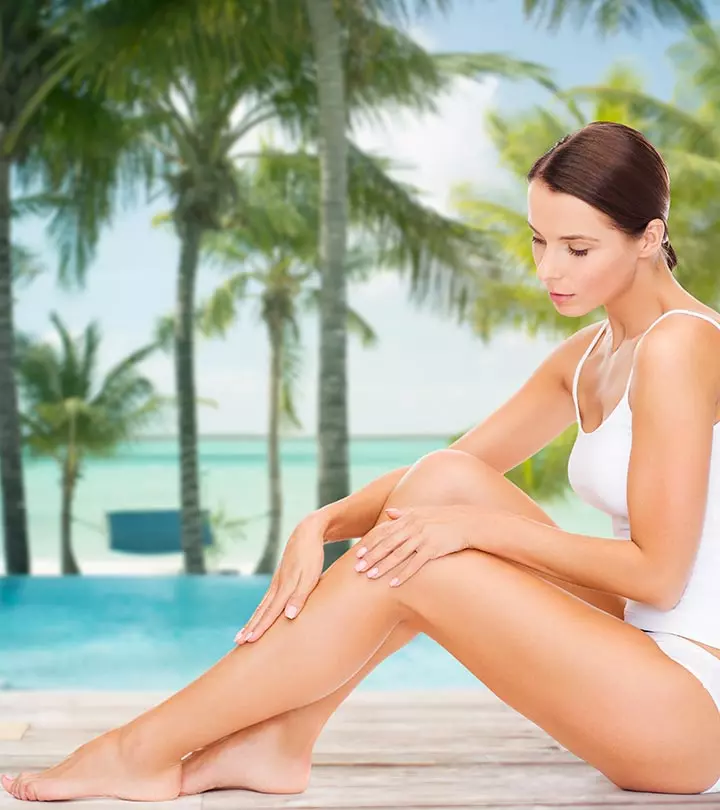
Image: Shutterstock
Swimming, besides a life skill, is one of the most fun-filled physical activities that help maintain your physical fitness. However, we often refrain from indulging in swimming because of the chlorine-treated pool and the skin irritations that follow. So, we are here with some tips on skin care for swimmers. Yes, you no longer have to be hesitant about diving to the pool when you feel like it. There are ways to protect your skin from those harmful chemicals and irritants. Do you wish to know more?
Here, we have curated a list of 9 essential skin care tips for swimmers to help you solve your skin issues. But, before that, let us see how swimming impacts your skin.
In This Article
Is Swimming Good Or Bad For Your Skin?
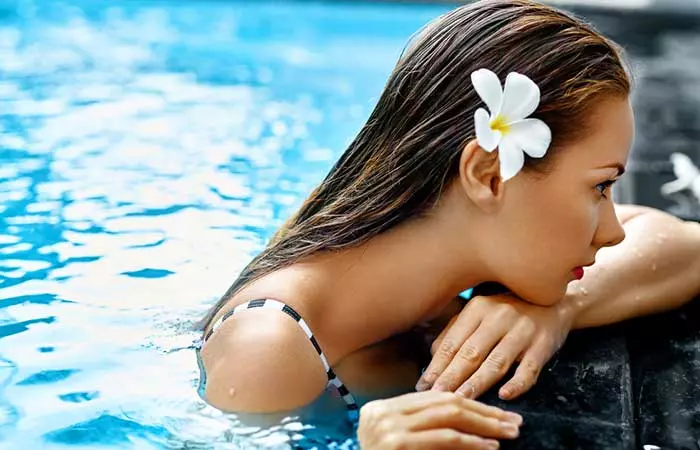
Most swimming pools have chlorine-treated water to keep bacteria and germs at bay. However, the same chlorine that kills bacteria can strip away protective natural oils when it comes in contact with your skin. This can cause a number of problems like (1), (2), (3), (4):
- Dry skin
- Premature aging is caused by dryness and protein damage.
- Itching and rashes caused by the tipped oil and pH balance.
- The excessive production of oils to make up for the lack thereof.
- Acne is caused by excessive oil production and pore-clogging.
- Sun damage is caused by the weakening of your skin.
However, taking the right precautionary measures can tip the scales in your favor. Swimming can help your skin by detoxifyingi The property of a substance that helps with the removal of toxins from the body. It aids weight loss and maintains hormonal balance. your body through exercise. The right amount of chlorine exposure can also kill acne-causing bacteria, helping clear your skin. However, it is important also to adopt a good skincare routine as a swimmer to ensure the adverse effects of prolonged chlorine exposure do not show on your skin. Otherwise, it can dry out and irritate the skin. A proper skincare regime can help protect, hydrate, and restore the skin’s balance. On that note, let’s check out the section below for some useful skin care tips before and after swimming.
Key Takeaways
- Use a good quality moisturizer daily to hydrate your skin.
- Apply sunscreen before and after your swim to protect your skin.
- Drink herbal teas with high antioxidant content to protect your skin from cancer.
- Consume lots of water while you swim to prevent your skin from absorbing chlorine water.
Pre And Post Skin Care Tips For Swimmers
Keep reading to find out how to take care of skin while swimming.
How To Prep Your Skin Before A Swim
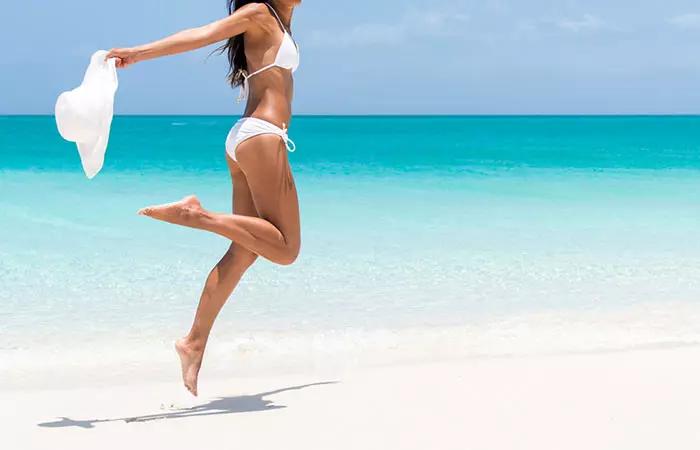
1. Slather On Some SPF
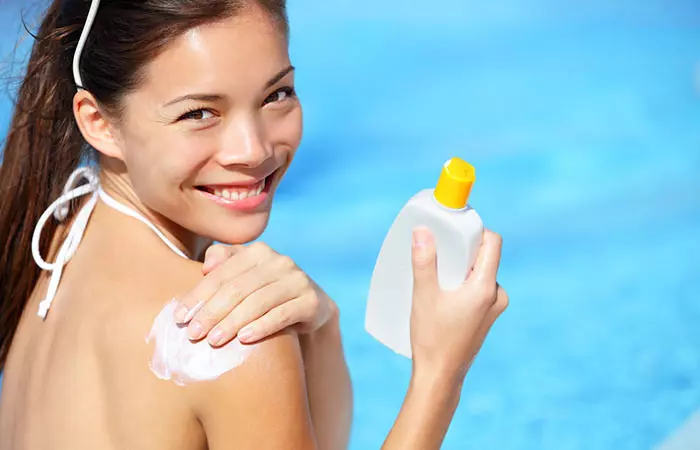
Using a waterproof sunscreen is not just a fancy practice to avoid tanning. The lotion will also form a protective barrier on top of your skin, keeping the chlorine from drying it out excessively. It will also prevent sun damage (and premature aging if you are a regular swimmer.) Investing in a pre-swimming lotion is also a good idea as these are specially formulated to block chlorine and retain moisture in your skin. Simply apply the products about 15 minutes before you intend to swim. This will give your skin plenty of time to absorb the sunblock, forming a strong barrier (5), (6), (7).
A recent study conducted by the American Academy of Dermatology shed light on how few US adults really know how to protect their skin from sun exposure. With over 1,000 U.S. adults participating, the study found that respondents gave importance to sun protection by various mediums including the application of sunscreens. Although 62% of respondents considered themselves excellently prepared regarding sun protection, 63% reported getting a tan and 33% reported getting a sunburn. 67% even incorrectly believed that SPF 30 sunscreen offers twice more protection than an SPF 15 sunscreen. This suggests that following a proper sunscreen regimen is essential to protecting your skin.
While it is recommended that you use sunscreen before swimming, Chhavi Mittal, a television and film actress and YouTuber, has different views about it. She shares, “I am not a huge fan of sunscreen because I feel that the minute you go into the pool, no matter how good your sunscreen is, it is bound to wear off (i).”
2. Take A Quick Shower
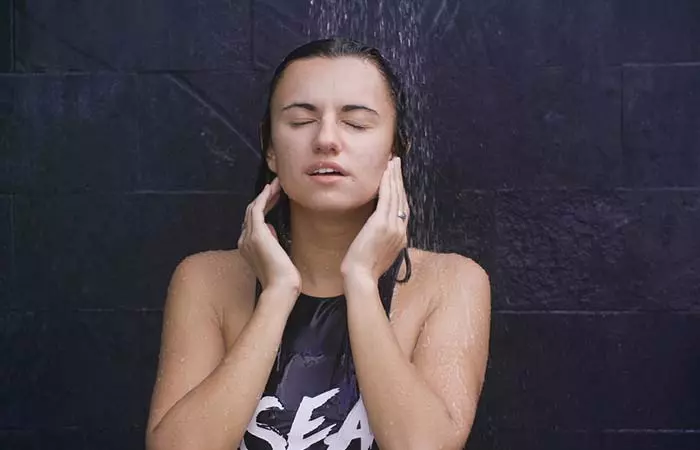
A quick shower before a dip is, more often than not, mandatory at most public pools. While stepping under water before a dip might sound pointless and like a bit of a drag, this keeps the pool from getting too dirty and helps in the hydration of your skin cells, keeping them from absorbing the pool water and reinforcing your sun-block barrier (8).
3. Hydrate And Then Hydrate Some More

One of the best ways to ensure that your skin does not get dehydrated is to keep sipping on some water while you swim. Make sure that you consume enough water throughout the day so that your skin is healthy and does not try to make up for lack of moisture by absorbing pool water. Think of your skin as a sponge, there is only so much water it can take on. And as long as it is moisturized, it’s not going to absorb excess amounts of chlorine (9).
Chhavi Mittal also shared that she does not care about tanning while swimming, but hates the dry, dull, and patchy skin that the chlorine in pool water may lead to. She adds, “So, what I do for that is I slap on a lot of coconut oil, like lots of it before I hit the pool and I also repeat the same after I come out.”
Post-Swim Skin Care Tips
4. Shower With Warm Water

It is crucial that you shower as soon as you get out of the pool. It’s a good idea to start off your shower with warm water. This will help open up your pores to allow for a thorough cleansing. Next, use an anti-chlorine soap (another good investment if you swim regularly) to cleanse your body. Wash your hair thoroughly. Finish by turning the shower to cool water to help tighten your pores. This will prevent moisture loss (10).
5. Don’t Forget Your Face

While you invest hours in perfecting the sport, you must also remember the face that bears the brunt so, give it the nurturing it deserves. The facial skin is more delicate than the skin on your body. As a result, it can get easily damaged after chlorine exposure. Moreover, prolonged sun exposure and the sheer intensity of water can strip the face of its natural oils, leading to dryness and irritation. Always wash your face with a gentle, soap-free cleanser, ridding your face of pool-induced impurities. Apply a suitable moisturizer on damp skin. Integrate a weekly exfoliation in your skin care routine to achieve healthy and glowing skin.
6. Apply Talc To Help You Dry Off
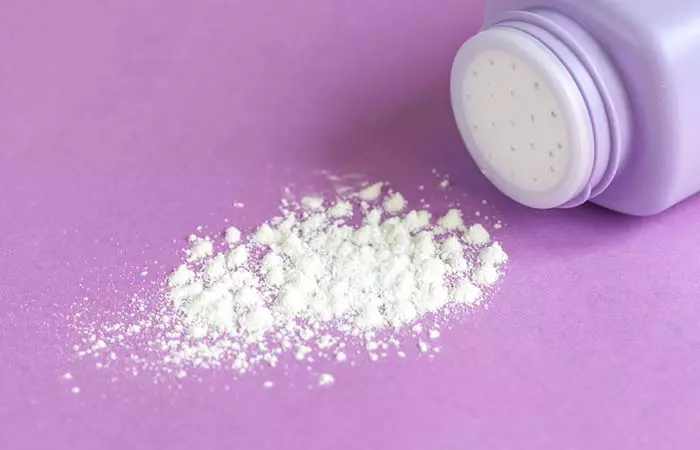
Okay, first things first, a little talc goes a long way. Applying talc to areas such as your armpits will help you dry off quickly in the pool shower. It will also help absorb any residual chlorine that might be present on your skin. Just ensure that you don’t use the talc on the parts of your body that you need to moisturize.
 Quick Tip
Quick Tip7. Moisturize Your Skin

This is the most important part of your swimmer’s skin care routine; moisturizing your skin. Invest in a good hydrating moisturizer and use it regularly to ensure that your skin stays healthy (11). Search for products with ingredients like hyaluronic acid and glycerin, which are both renowned for their excellent hydrating properties.
8. Care For Your Swimwear

Keeping your swimwear, goggles, and swim cap clean is a vital part of maintaining your skin health. Chlorine can also damage your swimwear by fading its color. You can maintain your swimwear by adding about a tablespoon of vinegar to your wash. This will not only help neutralize the chlorine smell but will also help maintain the color of the fabric.
 Quick Tip
Quick Tip9. Drink Herbal Tea
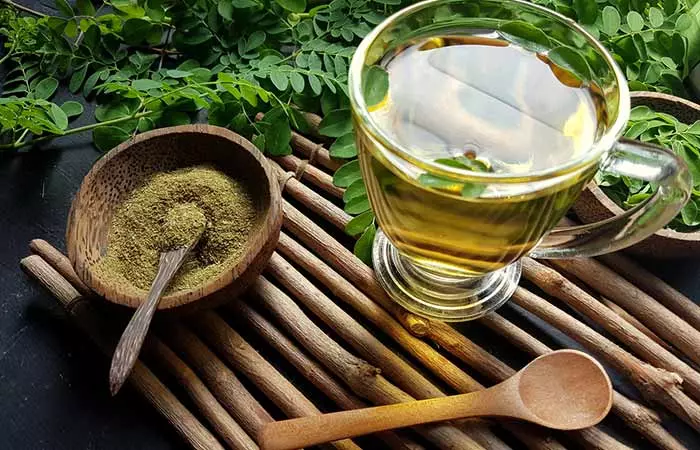
Infographic: Top Essential Skin Care Tips For Swimmers
Although swimming is a beautiful and revitalizing workout that can aid in weight loss, muscle growth, and core strength, spending so much time in the water can damage your skin. So before you dive into the water for a cooling workout, you must understand how to take care of your skin properly.
Check out the infographic below to understand some skin protection tips while going for a swim. Illustration: StyleCraze Design Team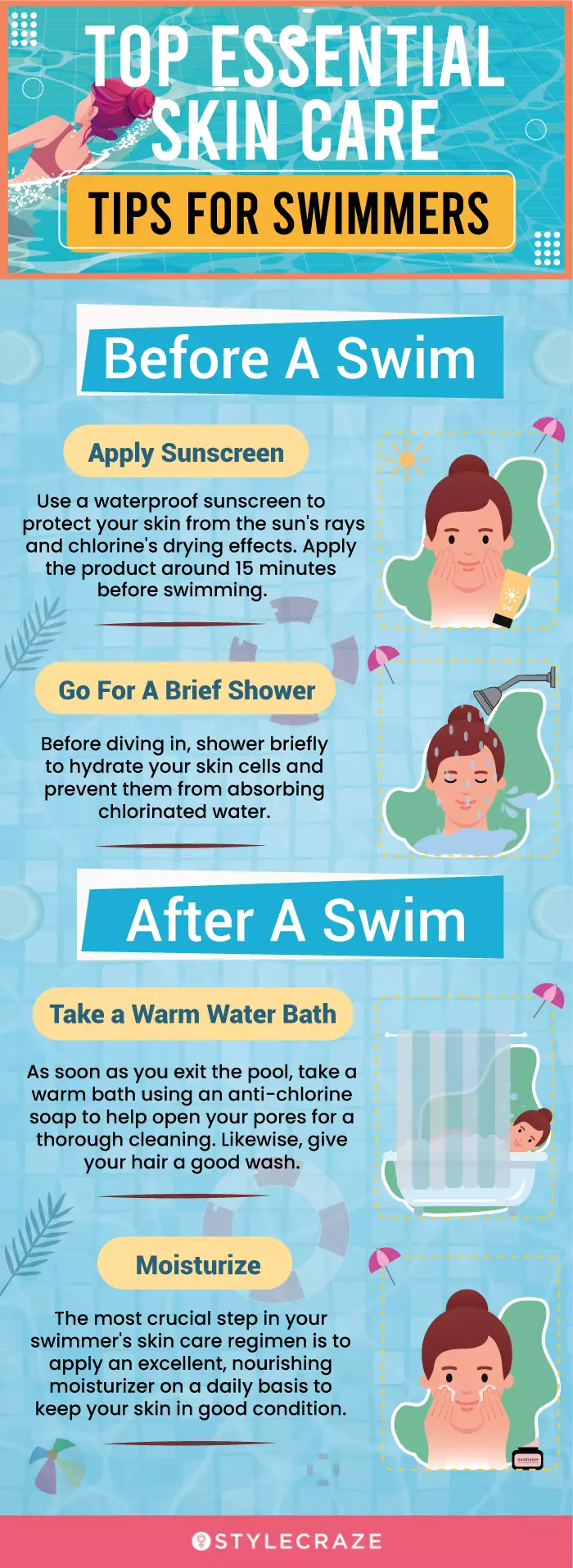
It is also a good idea to start drinking herbal teas that have rich antioxidant content. This will help relieve the stress of oxidative damagei The imbalance between free radicals or molecules formed during chemical changes in the cell and antioxidants. on your skin. The teas will supply your skin with antioxidants which will, in turn, neutralize free radicals that can wreak havoc on your skin. Moringa tea and green tea are two great options to choose from (12), (13).
Swimmers, protect your skin! Learn the most important tips to keep your skin healthy and glowing. Watch this video to learn how to stay footloose and carefree!
Here are some frequently asked questions about swimming and skin care:
Frequently Asked Questions
Which ingredients are most beneficial to look for in swimmer-friendly skincare products?
For swimmer-friendly skincare products, look for ingredients like hyaluronic acid for hydration, aloe vera for soothing, antioxidants like vitamin C to combat damage, and oils like jojoba to restore moisture balance.
How long does chlorine stay on your skin?
If you do not have a proper skin care routine in place, chlorine can bind itself to your skin, causing damage. If you swim regularly, this will cause issues such as rashes, acne, and premature aging.
Does chlorine water darken skin?
While chlorine by itself will not darken your skin, in combination with the Sun it can be the cause for a pretty bad tan. This is why you must always use sunscreen when you go for a swim.
How do I remove skin tan after swimming?
Rubbing a tomato on your skin will help lighten a bad tan. It is a good addition to your after-swim routine.
Can you get a chemical burn/skin itch from chlorine?
The irritant present in a chlorine-treated pool can give you irritant-dermatitis. This is a lot like a chemical burn, and people with chlorine sensitivity can experience skin redness, rashes, or itching. One way to avoid this would be to have an effective skin care routine in place for when you are swimming
Is it safe to use petroleum jelly to shield skin from dehydration when swimming?
Yes, it is safe to use petroleum jelly to shield your skin from dehydration. However, this will not prevent you from tanning.
Can chlorinated water cause eczema?
Yes, chlorinated water can trigger eczemai Skin inflammation caused by environmental factors or allergens, resulting in dry, itchy, and irritated skin. if your skin is not moisturized and shielded.
Can I apply Vaseline before swimming?
Yes, petroleum jelly is water-resistant which produces a strong barrier against chlorinated water. You can apply it before going for a swim to help preserve the natural moisture of your skin.
Should I use a body wash after swimming?
Yes, use a mild body wash or cleanser after a swim to wash off the chlorine, followed by a gentle exfoliation. Since chlorine can dehydrate the skin, apply a thick moisturizer right away to hydrate the skin.
While we all are aware of the benefits of swimming and its health advantages, it can have some adverse effects on our skin and hair. For instance, the chlorine-laden pool water is not good for your skin. It can cause dry, itchy skin and irritation in some cases. This, nevertheless, should not be a deterrent to your learning to swim. Therefore, we have compiled a list of nine crucial skin care tips for swimmers to assist you in resolving your skin problems. Furthermore, adopting the appropriate precautions can shift the odds in your favor. Do not let the effects of chlorine keep you from participating in this fantastic sport.
Personal Experience: Source
StyleCraze's articles are interwoven with authentic personal narratives that provide depth and resonance to our content. Below are the sources of the personal accounts referenced in this article.
i. Hair care & skin care while swimming | Being woman with Chhavihttps://www.youtube.com/watch?v=Oe7oQcxOFpI
References
Articles on StyleCraze are backed by verified information from peer-reviewed and academic research papers, reputed organizations, research institutions, and medical associations to ensure accuracy and relevance. Read our editorial policy to learn more.
- Health Effects from Swimming Training in Chlorinated Pools and the Corresponding Metabolic Stress Pathways
https://www.ncbi.nlm.nih.gov/pmc/articles/PMC4351252/ - Health-Related Behaviors in Swimming Pool Users: Influence of Knowledge of Regulations and Awareness of Health Risks
https://www.ncbi.nlm.nih.gov/pmc/articles/PMC4881138/ - Swimmer illness associated with marine water exposure and water quality indicators: impact of widely used assumptions
https://pubmed.ncbi.nlm.nih.gov/24045718/ - The Respiratory Health of Swimmers
https://link.springer.com/article/10.2165/00007256-200939040-00003 - Sunscreens And Photoprotection
https://www.ncbi.nlm.nih.gov/books/NBK537164/ - A randomized trial of skin cancer prevention in aquatics settings: The pool cool program.
https://psycnet.apa.org/record/2002-18664-006 - Characteristics of swimming pools with high rates of objectively measured sunscreen use
https://www.ncbi.nlm.nih.gov/pmc/articles/PMC3724408/ - Pilot Test on Pre-Swim Hygiene as a Factor Limiting Trihalomethane Precursors in Pool Water by Reducing Organic Matter in an Operational Facility
https://www.ncbi.nlm.nih.gov/pmc/articles/PMC7589656/ - Exercise and Fluid Replacement
https://journals.lww.com/acsm-msse/Fulltext/2007/02000/Exercise_and_Fluid_Replacement.22.aspx - Sports dermatology part 2: swimming and other aquatic sports
https://www.ncbi.nlm.nih.gov/pmc/articles/PMC527331/ - The Role of Moisturizers in Addressing Various Kinds of Dermatitis: A Review
https://www.ncbi.nlm.nih.gov/pmc/articles/PMC5849435/ - ANTIOXIDANT POTENTIAL AND NUTRITIONAL COMPARISON OF MORINGA LEAF AND SEED POWDERS AND THEIR TEA INFUSIONS
https://thejaps.org.pk/docs/v-25-01/31.pdf - Green tea extract: Chemistry antioxidant properties and food applications – A review
https://www.sciencedirect.com/science/article/abs/pii/S1756464613001953
Read full bio of Dr. Vindhya L Veerula
Read full bio of Arshiya Syeda
Read full bio of Ramona Sinha
Read full bio of Monomita Chakraborty







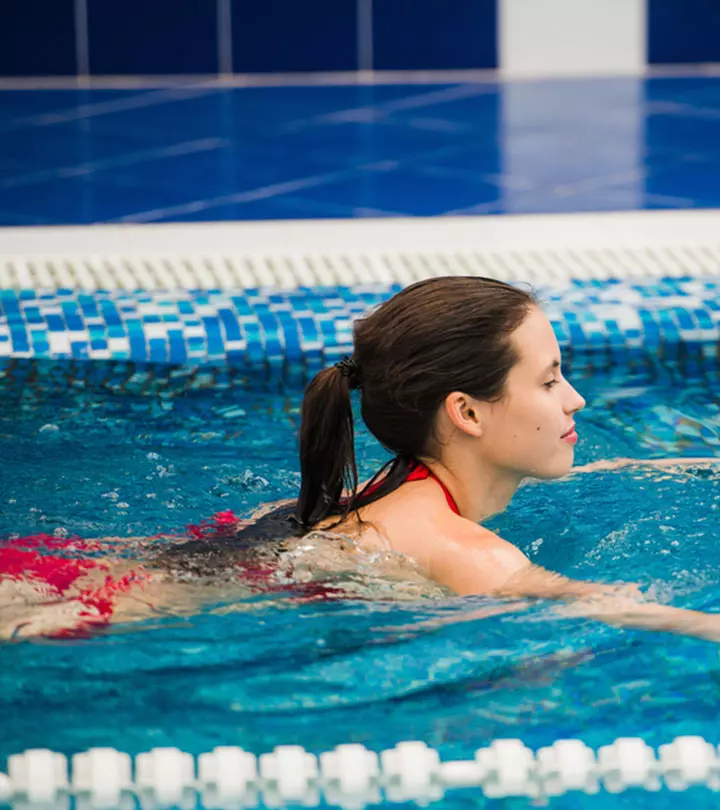
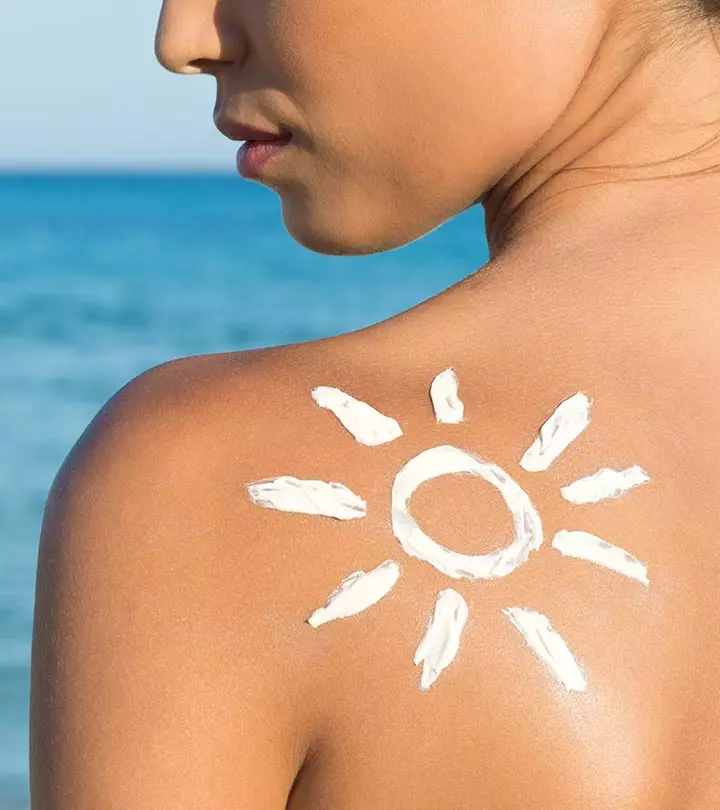
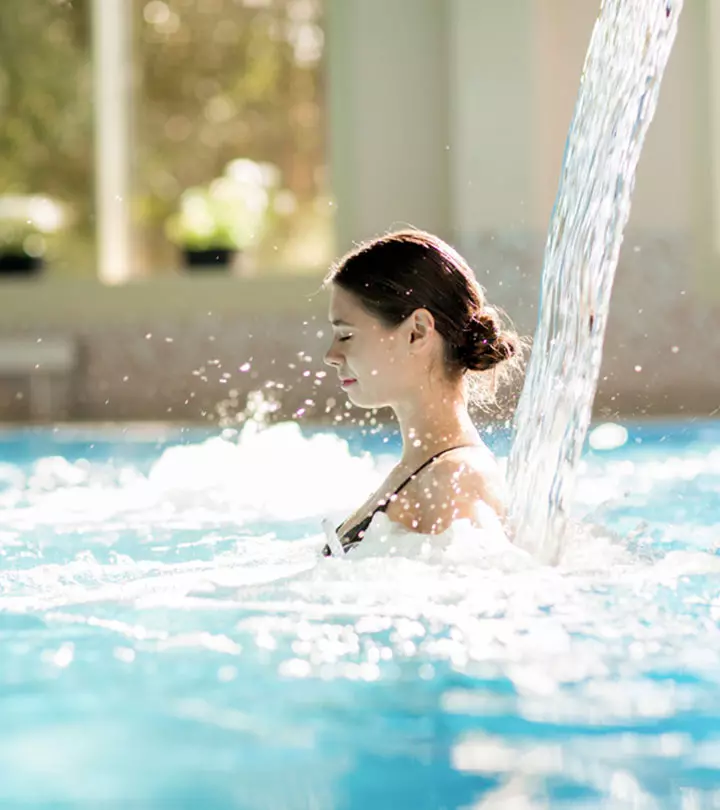
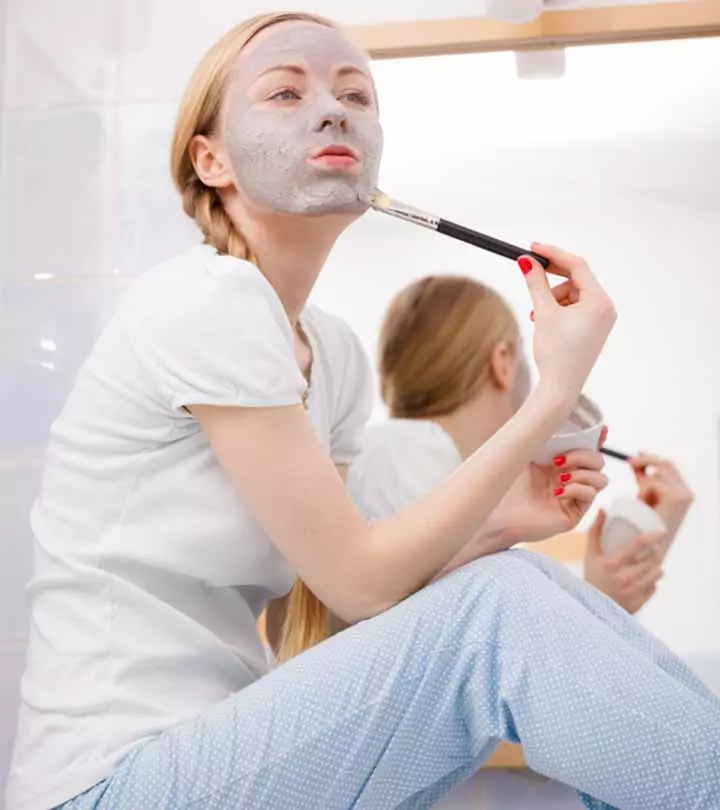
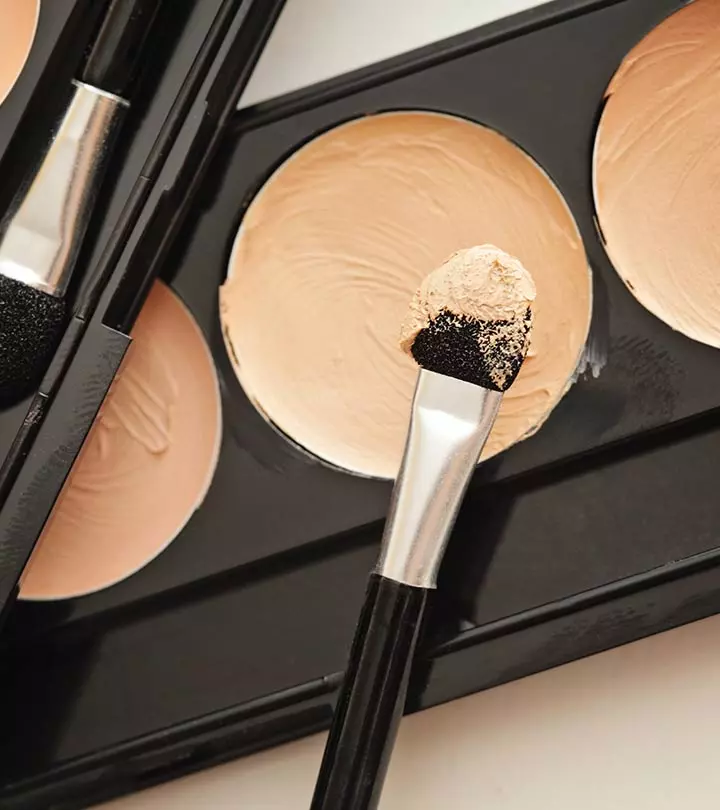





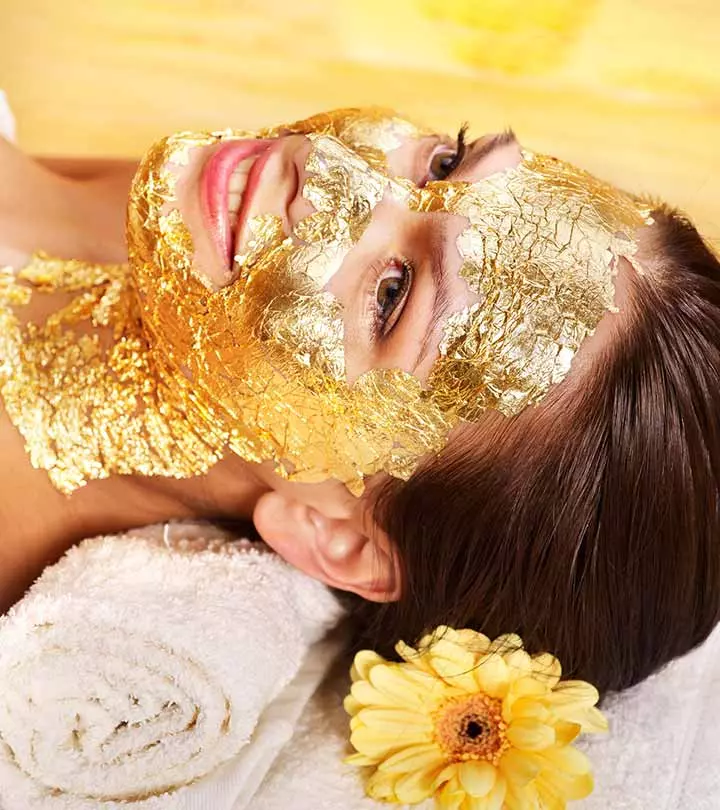
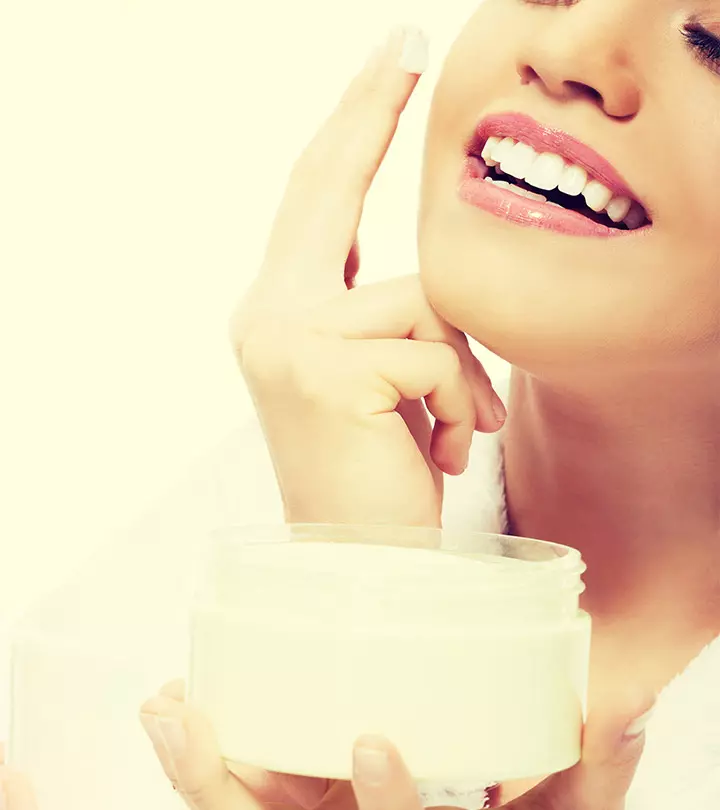
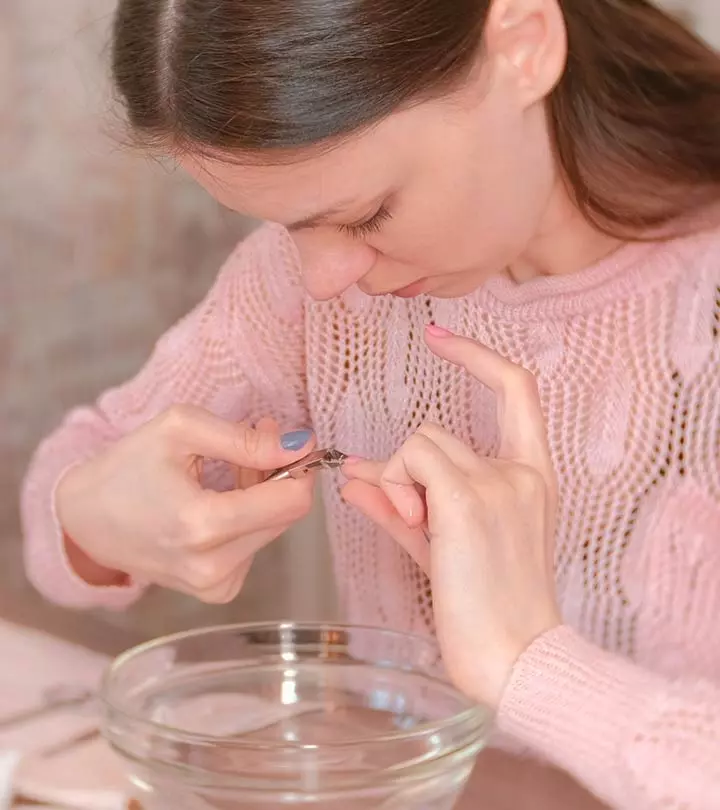
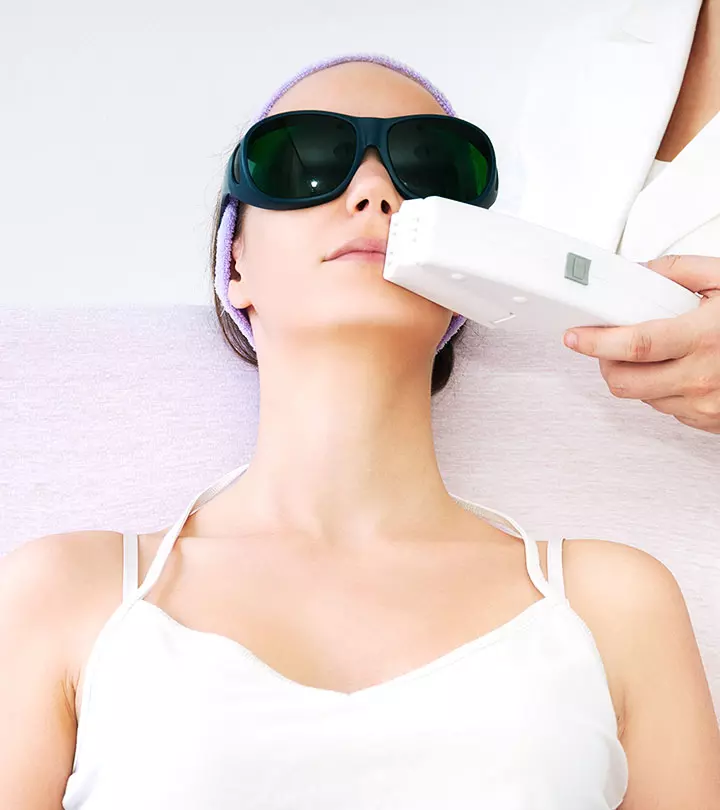
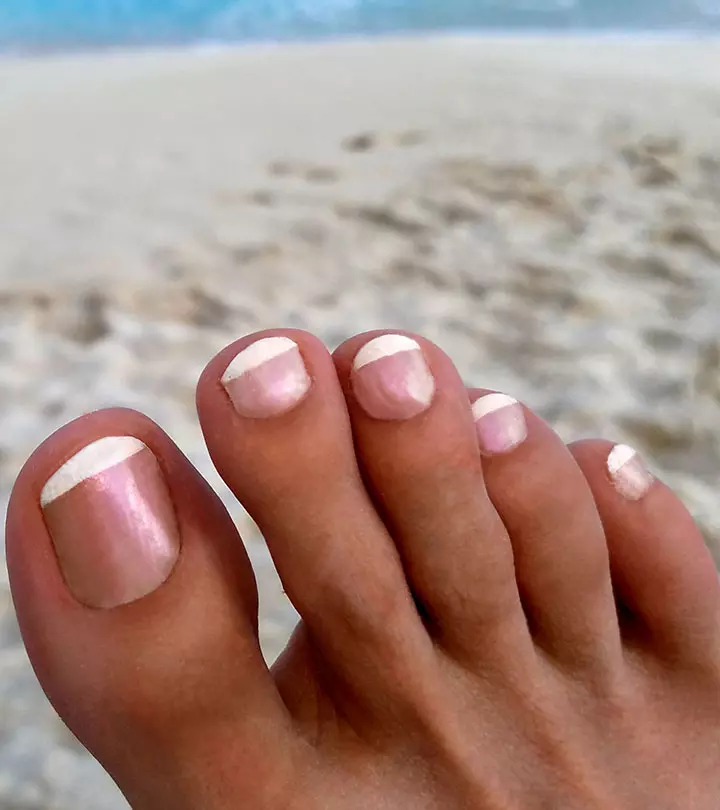

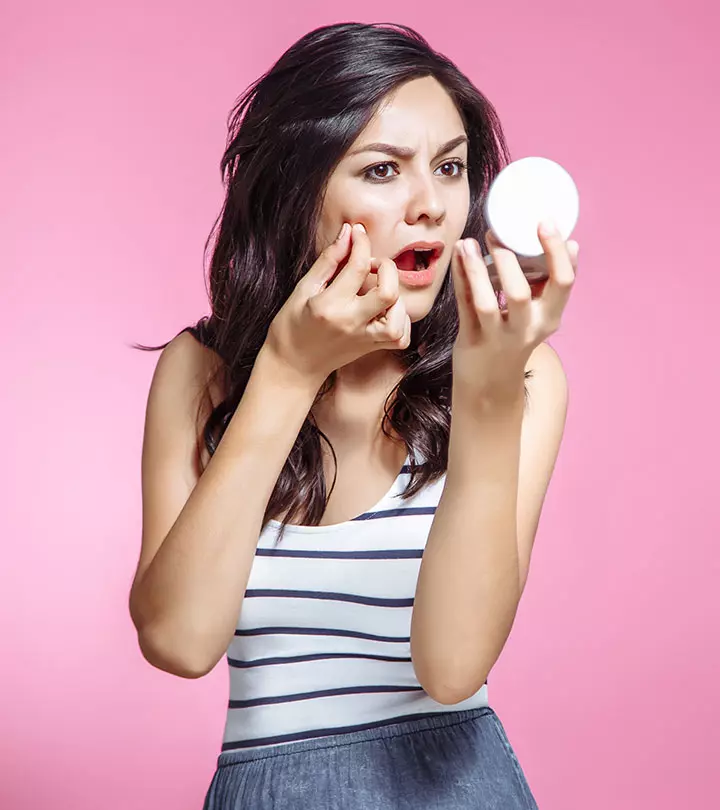
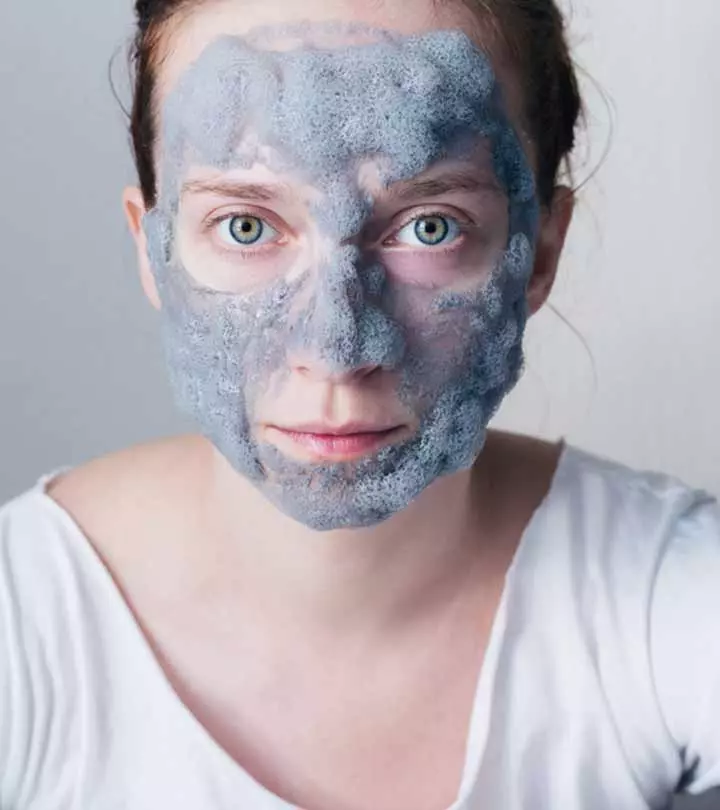
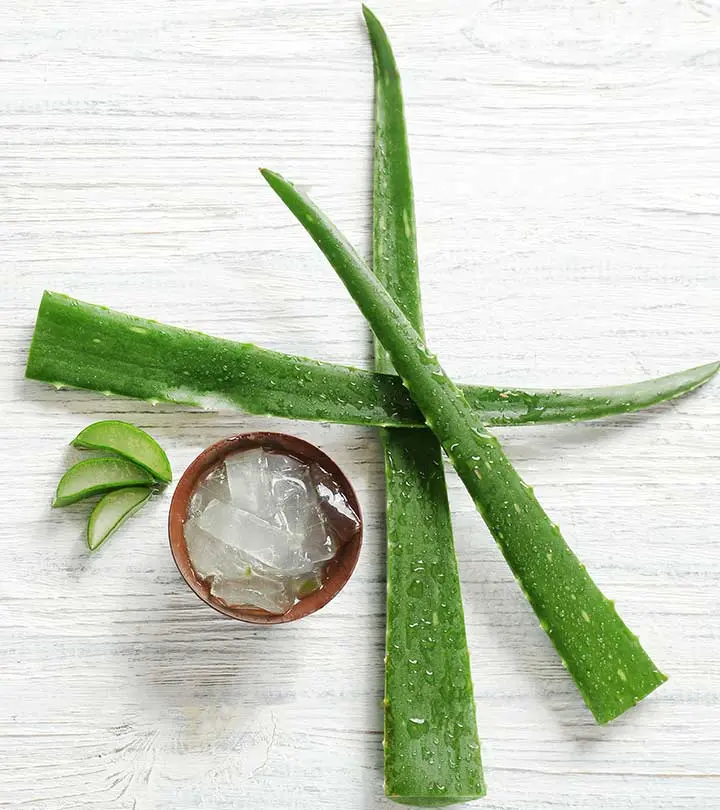
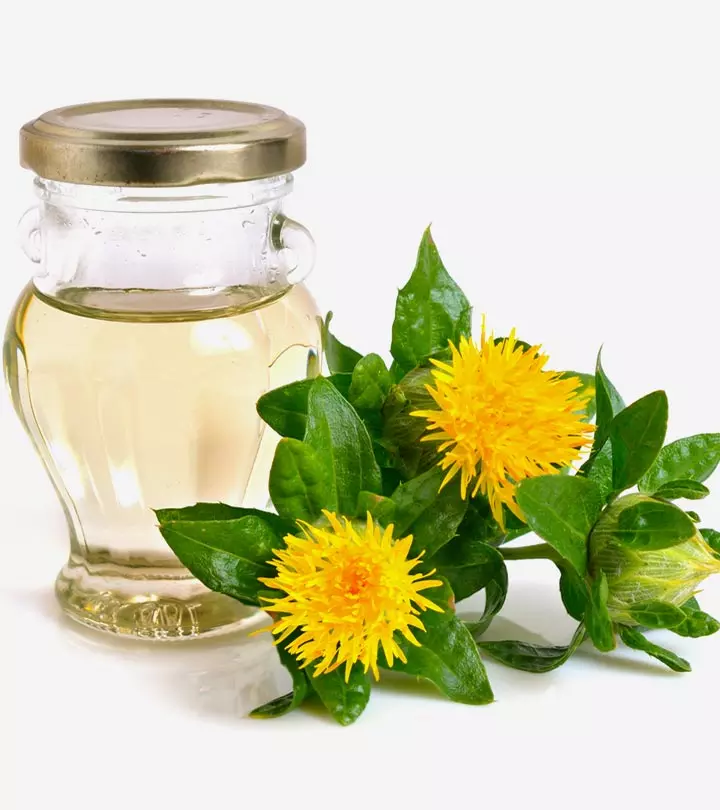
Community Experiences
Join the conversation and become a part of our empowering community! Share your stories, experiences, and insights to connect with other beauty, lifestyle, and health enthusiasts.